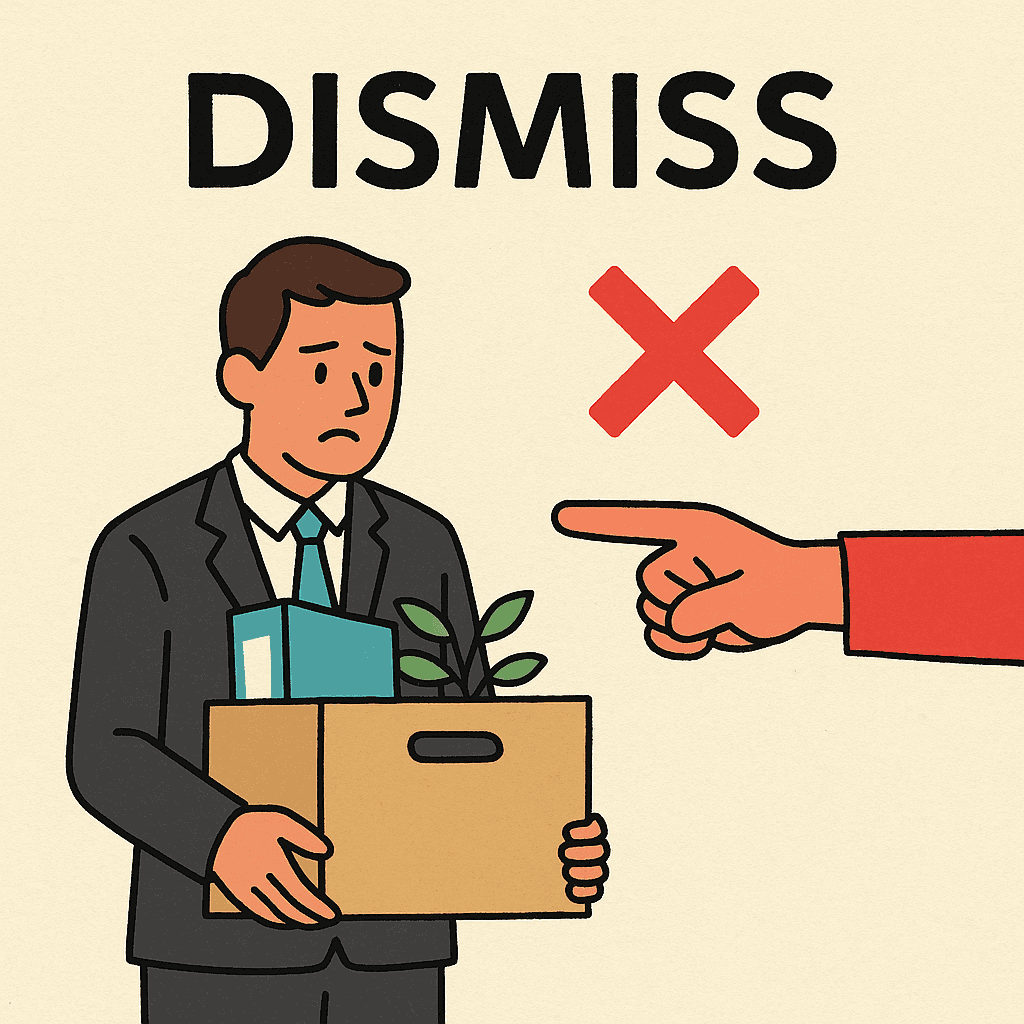Meaning
“Dismiss” means to remove, reject, or send someone/something away. It can refer to ending employment, rejecting an idea, or stopping attention to something.
Grammar and Usage
-
Part of speech: Verb (transitive)
-
Forms: dismiss, dismisses, dismissed, dismissing
-
Typical patterns:
- dismiss + object
- dismiss + object + as + (reason/category) e.g., She dismissed his opinion as nonsense.
Common meanings:
- To remove someone from a job or position: The company dismissed him for misconduct.
- To reject or ignore an idea or feeling: He dismissed the rumor as false.
- To formally end a meeting or class: The teacher dismissed the students early.
Common Phrases
- dismiss from a job – to fire someone
- dismiss an idea/opinion – to reject a thought or view
- case dismissed – (legal) to formally end a court case
- dismiss the class/meeting – to tell people they can leave
Collocations
- dismiss a complaint
- dismiss an employee
- dismiss a lawsuit
- dismiss criticism
- dismiss concerns
Examples
- The manager dismissed two workers for being late repeatedly.
- She dismissed the rumor as completely untrue.
- The judge dismissed the case due to lack of evidence.
- Don’t dismiss his suggestion without listening carefully.
- The teacher dismissed the class after the test.
- Many experts dismissed the claim as unscientific.
- The company quickly dismissed the report of bankruptcy.
- He dismissed his worries and focused on the meeting.
Synonyms or Related
- fire
- reject
- discharge
- expel
- disregard
- terminate
Antonym
- hire
- accept
- consider
- approve
